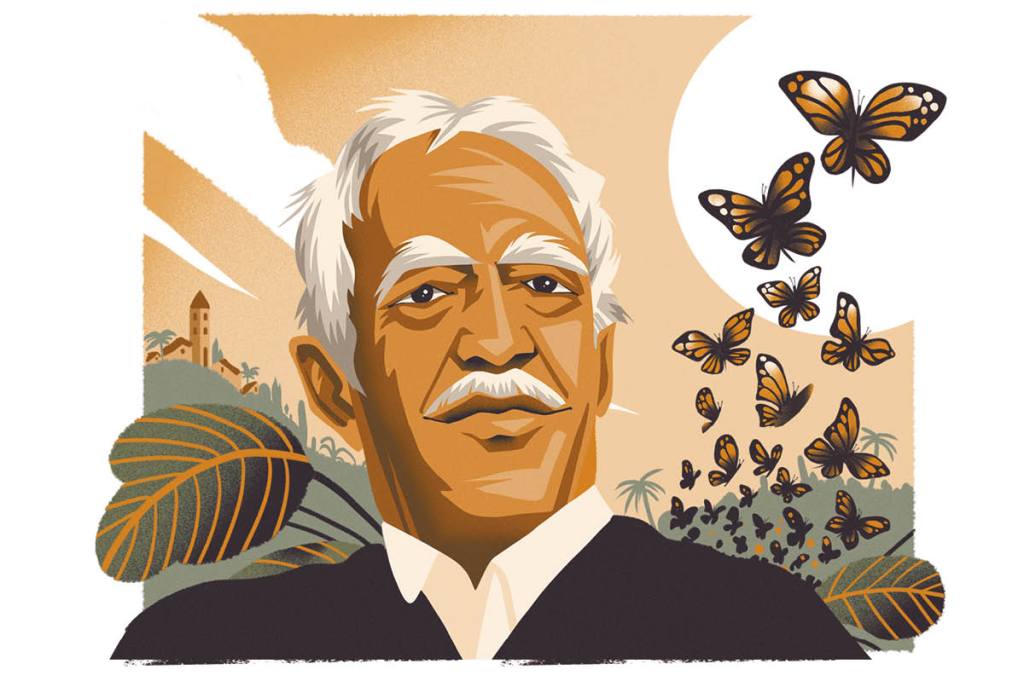Love and loneliness. Loneliness and love. These two motifs, these two codependent deities, underpin all of grand maestro Gabriel García Márquez’s fiction — from his bewitching magnum opus One Hundred Years of Solitude to the tumultuous romance of Love in the Time of Cholera. His final sultry, sun-soaked and unexpected work, Until August, which he attempted to complete while struggling with dementia, is a continuation of these oeuvre-defining themes. It’s a damn shame it’s half-baked.
The circumstances under which Until August came to be written might, themselves, one day make a rather droll short story, perhaps even a sparky novella. During his illness García Márquez worked on a series of sketches for a novel, but in the end threw his hands in the air and said they should never see the light of day: “This book doesn’t work. It must be destroyed.”
So why has it emerged? Admitting that its publication might constitute an act of “betrayal,” García Márquez’s sons have published the work anyway, placing “his readers’ pleasure ahead of all other considerations.” The choice between legacy and fandom is a difficult one. Particularly when the question arises of whether posthumous publication of a rejected work is decent or somehow prurient.
Prurience, indeed, is one of the themes of the book, or at least it would have been in less seasoned hands. Until August — or En Agosto Nos Vemos (“We’ll see each other in August”) — is so named because every year, Anna Magdalena Bach, a happily married middle-aged teacher, travels to the Caribbean island where her mother is buried to lay a bunch of gladioli on her grave. It is a ritual to which she has become well accustomed: same ferry ride, same ramshackle taxi, same economical florist, same dilapidated hotel.
Anna Magdalena muses that her mother probably chose this particular cemetery because it was “the only solitary place where one could not feel alone.” She, however, experiences unhappy solitude despite her ostensibly “happy” life. Attempting to fill the void, she begins to take lovers — each one enjoyed for a single night during her annual trip to the island. These illicit encounters are only halfway liberating and erotic, always tainted to some degree by the memory of the first, when her departing lover dared to leave a crisp $20 bill between the pages of her book. Despite this insult, she presses on in search of — well, we never really find out. Connection? Solace? True love? It’s anyone’s guess.
Still, there are fleeting pleasures for the reader. In García Márquez’s hands, coupled with the adroit translation of Anne McLean, the seduction scenes are impressively rhythmic. An inviting glance from Anna Magdalena’s “big golden eyes” usually sets them in motion. Then suddenly she’s straddling her first lover, taking him in “right up to her soul” and devouring him “for her own pleasure not even thinking of his, until they were left in a soup of sweat.” A later experience leaves her “threshed and burning and in need of three days of compresses and sitz baths.” The reader might feel something similar.
With all this rarefied thrashing about, Until August may feel rather like an upscale travel ad — Ashley Madison with a creative writing degree — for a titillating Colombian getaway, aimed at those hankering after some literary rumpy-pumpy in addition to their rum punch. We are, like Anna Magdalena, swept away to “golden sand beaches bordered by virgin jungle” which ring evocatively with the “clamor of birdsong.” And in many ways, it is the perfect beachside read for the summer: short, sexy and sultry. Although this was almost certainly never García Márquez’s intention. It is at times difficult to remember, as Anna Magdalena embarks on yet another energetic bout of poetically described coitus, that García Márquez won the Nobel for literature.
Not that the book is merely an exercise in sexual fantasy. On a second read it is possible to have a greater appreciation of the delicate Márquezian touches that ensure its sensuality is neither hurried along nor encumbered. Any raunchy scenes are undercut by a twinge of malaise, a reminder of Anna Magdalena’s lack of fulfillment. This has always been García Márquez’s strong suit: the creation of an atmosphere drenched in longing and desire but weighed down, inevitably, by sadness.
Unfortunately, the brevity of Until August denies readers the intricate world-building of his previous books. There are noble attempts to enrich Anna Magdalena’s storyline and allow her to demonstrate a personality but without proper development, they just ring hollow. Her bizarre personal library — Dracula, The Day of the Triffids, The Martian Chronicles, The Ministry of Fear, Daniel Defoe’s Journal of the Plague Year — feels like a completely arbitrary step toward character depth, but she never dwells on what she reads; it’s just there. At times, I was reminded of an all-time-great clunker in cinema: the dire Hollywood adaptation of Hawthorne’s The Scarlet Letter, where what passes for literary discussion between the forbidden lovers is simply brushed over — “Do you know John Milton’s Comus?” “Yes, I’ve read it.” That’s it.
García Márquez’s allusions are not simply literary, however. Even his protagonist’s name — Anna Magdalena Bach was Johann Sebastian’s wife — alerts us to the significance of the musical references littered throughout the novel. This Anna Magdalena’s husband is director of the provincial conservatory and her family are all talented musicians. Her daughter listens to jazz; her son will play Tchaikovsky’s Variations on a Rococo Theme as a member of the Philharmonic Orchestra; on the island she sips gin to Debussy’s “Clair de lune.” But all of this remains background noise, alas. One longs for a symphony, and instead one is fobbed off with scales.
Until August has a curiously half-baked feel, as if it’s a souvenir of a great man’s legacy rather than a work in itself. Certainly, its publication will come as a welcome surprise for the legions of superfans who affectionately call García Márquez by his familial nickname “Gabo.” His is quite the global literary cult; a staggering 250,000 copies of Until August have supposedly already been pre-ordered across Latin America alone, and it seems likely to remain a fixture in the bestseller list for weeks, if not months. This is a fitting response to a remarkable legacy. This time last year, he overtook Cervantes to become the most translated Spanish-language writer of this century. There is, without a doubt, a fervent appetite for more García Márquez. But since when do fans get the last say?
There is precedent for this, alas. A few years ago there was a great deal of to-ing and fro-ing about Nabokov’s supposedly final novel, The Original of Laura, which his son Dmitri published posthumously. Alas, The Original of Laura was not very good. Martin Amis wrote of it that “When a writer starts to come off the rails, you expect skidmarks and broken glass; with Nabokov, naturally, the eruption is on the scale of a nuclear accident.” It is still talked of in hushed tones in literary circles as an act of necrophilia on a grand scale.
Thankfully, Until August is nothing like as egregious a desecration of a major legacy. It is, overall, a pleasant and enjoyable tale, bingeable on a summer’s afternoon. Is it life-changing? No. Is it particularly memorable? Not really. Had García Márquez had the time required to flesh out this impressive but sketchy outline, it might have constituted another masterpiece. But as it is, a master knows his art best, and García Márquez’s judgment stands.
This article was originally published in The Spectator’s May 2024 World edition.


























Leave a Reply